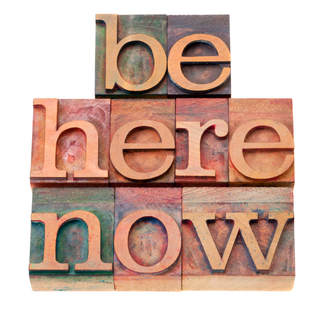
Habits are created when we find ourselves triggered, we develop the behaviour and then there is a feeling of association with that behaviour that may satisfy what triggered the behaviour and of course we start to repeat the process. This is the habit formation.
Step 1: Trigger – turns off the control mechanism and opens up to auto response
Step 2: Behaviour – is formed either consciously or unconsciously
Step 3: Reward – the feeling satiety / pleasure (in the example above perhaps it’s the ability to switch off from the stresses of work – a funny video about cats helps us forget the challenges of the day but what we have created is the unconscious habit of multi-tasking as we eat)
Step 4: Repeating Habit – neural pathways form and the cycle continues as the power of the unconscious brain keeps you going back for more (constant reward)
The Prefrontal cortex (our newer part of the brain or the decision making aspect of the brain) has shut down or the connection to the prefrontal cortex is bypassed. Our more reptilian aspects of our brain – the emotional centre, the survival parts, behaviour forming, pattern recognition parts are more active with habitual task, such as habitual eating. By the Pre-frontal cortex slowing down or shutting down altogether we are able to multitask. So while we are able to complete many tasks at once there is the cost of not being conscious of what we are actually trying to achieve. Tasks therefore might not be completed correctly or in the case of eating, we may not get the necessary feelings of satisfaction, satiety or fullness that we might experience if we were fully present with our food.
Creating mindful habits can satisfy our needs and leave us with a feeling of being satisfied.
A Cascade of Chemical Reactions in the BodyDuring the habit form cycle there is a cascade of chemical reactions that occur in the body. It is these chemicals that give us the reward aspect of the cycle.
When the behaviour is enacted the reward and pleasure hormone Dopamine is released leaving us with a sensation we leaves us feeling good. This is why we continue repeating the behaviour, for the dopamine release. Our body starts to crave it and therefore we find ways that support its release.
Changing the Habit
Good news we can control our behaviour – reward response cycle.
Habits are not always easy to change and it takes a lot of practice. But it is possible to change the unhealthy habits we have formed to embrace a conscious, mindful behaviour. Ultimately the goal is to form newer healthier habits that have lasting effects and maintaining those habits by practicing mindfulness in all aspects of our life.
The first step to changing the habit is that we need to develop awareness of the trigger or cue for the behaviour.
There have been numerous studies that have demonstrated the effectiveness of mindfulness practices such as yoga and meditation which mediate increased awareness. Here is a meditation you can listen too as a brief introduction to developing awareness.
When you notice the trigger you can set about changing the cycle or behaviour-reward. Perhaps it’s not necessarily one thing maybe it’s a series of events that lead to the behaviour. In this case it’s a good idea to start journaling so you can get a grasp of the ‘event’ behind the behaviour. Generally you find a trigger will be:
- An emotional trigger (anger / boredom / sadness)
- It could be related to a time of day / week / month
- It might have association with a place or location
- Or it could be to do with an interaction with a person or even a particular event
Then you might like to set about determining the reward – is it a sugary hit? Perhaps it’s a glass of wine or beer? Could it be purchasing a coffee with a sweet treat? All of these examples are food based but it doesn’t necessarily have to be a food reward.
In some cases when we are faced with traumatic events we develop avoidance behaviours. These avoidance behaviours start to create situations that might not be a positive habit and compounds issues. For example if we have an argument with a friend we might start bitching about them to other people as you seek vindication for your part in the argument which ultimately may not be conducive to future friendships if we are known as the whinging friend who gossips.
The next step once you have determined your trigger and where that leads to in terms of the reward it’s time to start to make a plan on how you will change your behaviour.
If for instance your know that when you walk past a particular shop on your way home from work and in that process of walking past you always walk in and buy your favourite mocha latte with a chocolate donut you can re-route your trip home to not go past that shop.
Sometimes we know it’s not possible to avoid situations so we need to find creative ways to develop a new behaviour. This might include:
- Deviating from routine
- Reframing your thinking – mindset / affirmations
- Embrace failure – it actually takes many times of failing at breaking a habit before you succeed in changing it
- Find a more suitable yet equally delectable reward (i.e. herbal tea instead of that latte)
- Find an accountability partner


 RSS Feed
RSS Feed